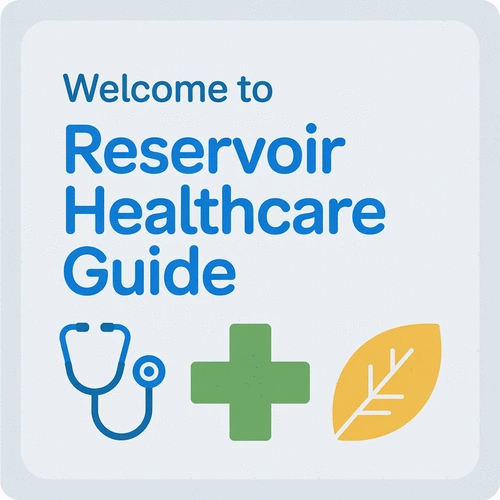Have you ever wondered what factors contribute to the costs associated with a private hospital stay? Understanding this can significantly influence your healthcare decisions and budgeting. Let's break it down.
What You Will Learn
- Daily accommodation fees typically range from $300 to $700 based on room type and amenities.
- Specialist fees are billed separately; inquire about these ahead of your hospital visit.
- Choosing a private room can add an extra $200 or more per day to your bill.
- Understanding medical billing terms like out-of-pocket costs and deductibles is crucial for financial planning.
Understanding Private Hospital Costs at Reservoir Healthcare Guide
This visual breaks down the typical daily costs and additional charges you might encounter during a private hospital stay, emphasizing factors that influence your overall expenses.
Daily Accommodation Fees
Covers room & standard nursing care. Rates vary by room type.
$300 - $700 / day
(Shared to Luxury Suites)Additional Charges
Premium options for enhanced comfort or critical care.
+$200 / day
(Private Room or ICU)Specialist Fees
Vary significantly based on doctor and treatment needed.
Inquire Ahead
(Can be billed separately)Key Billing Terms
Understanding these helps manage healthcare expenses.
- Out-of-pocket: Uncovered by insurance.
- Copayment: Fixed fee for specific services.
- Deductible: Amount paid before insurance covers.
Understanding Private Hospital Fees in Reservoir
Navigating the world of private hospital fees can feel overwhelming. At Reservoir Healthcare Guide, I want to help you understand what to expect from your hospital stay costs. From daily accommodation rates to additional charges, knowing these details can empower you to make informed decisions about your healthcare, especially when considering the significant impact of hospital pricing on overall healthcare spending, as discussed by Health Affairs.
- Daily accommodation rates
- Specialist fees
- Extra charges for private amenities
By breaking down the components of private hospital fees, you can approach your healthcare experience with greater confidence!
What to Expect from Private Hospital Stay Costs
When considering a stay at a private hospital, such as Reservoir Private Hospital, it's essential to understand that costs can vary based on several factors. Typically, you’ll encounter daily accommodation fees, which cover your room and basic services provided during your stay. However, there may also be extra charges for specific amenities like a private room or specialized treatments.
Being aware of these costs can greatly influence your planning. For instance, if you're considering a private room for added comfort, you should factor those expenses into your budget!
Breaking Down Key Cost Elements
Daily Accommodation Fees
At Reservoir Private Hospital, daily accommodation fees typically cover the cost of your room and standard nursing care. Depending on the type of room you choose—whether it's shared or private—the rates will differ. On average, you might find daily fees ranging from $300 to $700, depending on your chosen amenities and services.
- Standard wards
- Private rooms
- Luxury suites
Understanding these fees upfront allows you to plan your budget effectively and avoid any surprises during your visit!
Specialist Fees and Charges
Another vital component to consider is the fees associated with specialists. Different doctors and treatment options can significantly impact your overall hospital costs. For instance, if you require the services of a surgeon or a specialist for your condition, their fees will be billed separately, often in addition to your daily accommodation fees. Hospital costs are a major component of national health spending, and understanding specialist fees is key to navigating these expenses.
It's crucial to inquire about these fees ahead of your visit! Many specialists will provide an estimate, helping you understand what to expect.
Additional Charges for Private Rooms and Intensive Care
Choosing a private room or intensive care services will also incur additional costs. While these options can offer enhanced comfort and personalized care, they come at a premium. In some cases, private room fees can add an extra $200 or more per day to your hospital bill.
Before making a decision, weigh the benefits of these options against the added financial burden. Understanding your choices will ensure you make the best decision for your health and budget.
Key Elements of Medical Billing and Charges
Lastly, let’s dive into how medical billing works. A few common terms you may encounter include out-of-pocket costs, copayment, and deductible. Understanding these terms is essential for managing your healthcare expenses effectively. Initiatives like the Health Plan Price Transparency rule aim to provide consumers with more information about healthcare costs.
- Out-of-pocket costs: The amount you pay for medical services not covered by insurance.
- Copayment: A fixed fee you pay for specific services, either at the time of service or billed later.
- Deductible: The amount you must pay before your insurance begins to cover costs.
Familiarizing yourself with medical billing terminology will not only alleviate confusion but also help you feel more in control of your healthcare journey. Remember, questions are always welcome, and I'm here to support you as you navigate these complexities!
Pro Tip
Before your hospital visit, take the time to verify your insurance coverage. Contact your provider to clarify what services are included and any potential out-of-pocket costs. This proactive approach can help you avoid unexpected bills and ensure a smoother healthcare experience.
Summarizing Key Points on Hospital Fees and Insurance Coverage
Understanding the landscape of hospital fees and insurance coverage is essential for patients in Reservoir. Knowledge empowers you to make informed decisions about your healthcare, allowing for better financial planning and less stress during potentially overwhelming times. By familiarizing yourself with costs, you can prepare for what to expect before, during, and after your hospital stay.
Many patients often feel uncertain about how to navigate their healthcare expenses. This uncertainty can lead to unexpected out-of-pocket costs and confusion regarding insurance coverage. That’s why I believe that being informed is not just beneficial; it’s crucial!
Why Understanding Costs is Crucial for Patients in Reservoir
When you’re facing a healthcare decision, knowing the associated costs can significantly alleviate anxiety. Here are a few reasons why understanding these aspects is vital:
- Financial Clarity: Knowing your potential expenses helps in budgeting effectively.
- Informed Decisions: Understanding the costs allows you to make informed choices about your care options.
- Reduced Stress: Being prepared can help reduce the stress that comes with unexpected medical bills.
By taking the time to learn about hospital fees and insurance coverage, you set yourself up for a smoother healthcare journey. It ensures you're not only prepared for the costs but also equipped to advocate for your health!
FAQs Addressing Common Concerns
As we navigate the complexities of private healthcare, I often encounter similar questions from patients regarding hospital fees and insurance coverage. Here are some frequently asked questions that might resonate with you:
- What are the typical costs associated with a private hospital stay?
- Daily accommodation fees for a private hospital typically range from $300 to $700, depending on the room type and amenities. Additional charges for private rooms or intensive care can add $200 or more per day. Specialist fees are billed separately and vary based on the doctor and treatment.
- How do I know what my insurance will cover?
- It is crucial to contact your health insurance provider directly before your hospital visit. They can clarify your specific coverage, what services are included, and any potential out-of-pocket costs you might incur.
- What is the difference between copayments and deductibles?
- A copayment is a fixed fee you pay for specific services, either at the time of service or billed later. A deductible is the total amount you must pay out of pocket before your insurance coverage begins to pay for costs.
- How can I minimize out-of-pocket expenses?
- To minimize out-of-pocket expenses, proactively verify your insurance coverage, inquire about specialist fees and potential additional charges ahead of time, and understand key medical billing terms. Additionally, explore any available financial assistance programs.
Take Action for Better Healthcare Decisions
Contact Information for Further Assistance
If you find yourself needing more personalized advice on hospital fees and coverage, don’t hesitate to reach out to us at Reservoir Healthcare Guide. Our goal is to ensure you have the information you need to make informed decisions about your healthcare.
Encouraging Proactive Engagement with Health Insurance Providers
I encourage all patients to engage proactively with their health insurance providers. Discussing your options with a representative can help clarify what services are covered and any potential out-of-pocket expenses you might face. This proactive approach can save you time and money in the long run!
Understanding Patient Rights and Financial Assistance Programs
It’s also important to know your rights as a patient concerning hospital fees. You have the right to receive clear and accessible information regarding your costs and treatment options. Additionally, various financial assistance programs may be available to help ease the burden of healthcare costs. Exploring these options can lead to significant savings and reduce financial stress.
Recap of Key Points
Here is a quick recap of the important points discussed in the article:
- Understand daily accommodation rates, which can range from $300 to $700 depending on room type and amenities.
- Inquire about specialist fees, as they are billed separately from daily accommodation fees.
- Additional charges for private rooms can add $200 or more per day to your bill.
- Familiarize yourself with medical billing terms like out-of-pocket costs, copayment, and deductible to manage expenses effectively.
- Engage proactively with your health insurance provider to clarify coverage options and out-of-pocket expenses.









